COVID-19 and peacebuilding in Africa
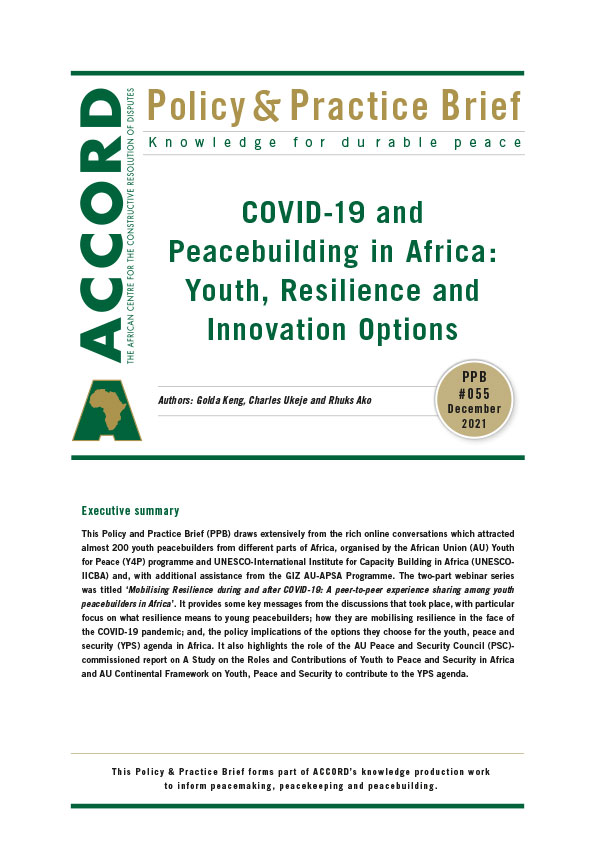
This Policy and Practice Brief (PPB) draws extensively from the rich online conversations which attracted almost 200 youth peacebuilders from different parts of Africa, organised by the African Union (AU) Youth for Peace (Y4P) programme and UNESCO-International Institute for Capacity Building in Africa (UNESCOIICBA) and, with additional assistance from the GIZ AU-APSA Programme.
The Case for updating the African Union Policy on Unconstitutional Changes of Government
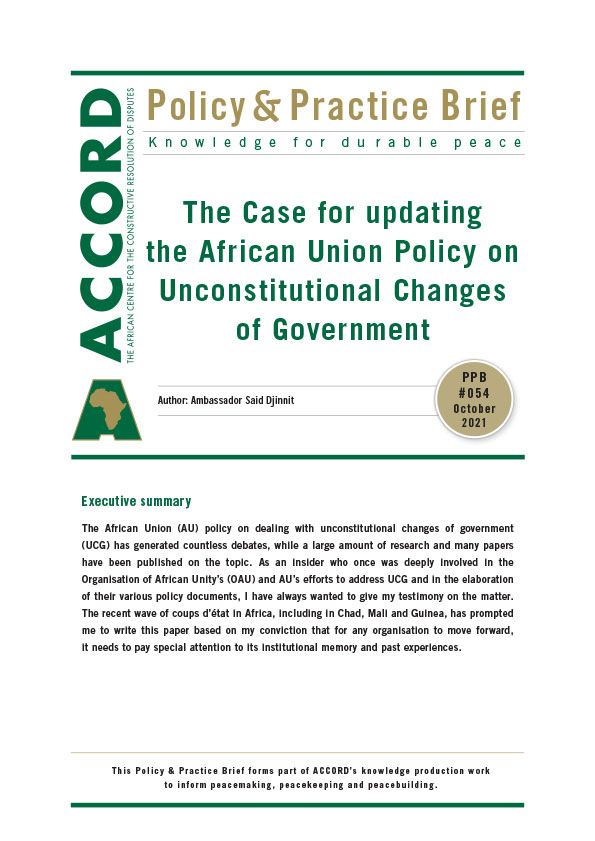
The African Union (AU) policy on dealing with unconstitutional changes of government (UCG) has generated countless debates, with the recent wave of coups d’état in Africa, including in Chad, Mali and Guinea, prompting the conviction that for any organisation to move forward, it needs to pay special attention to its institutional memory and past experiences.
Women Mediation Networks
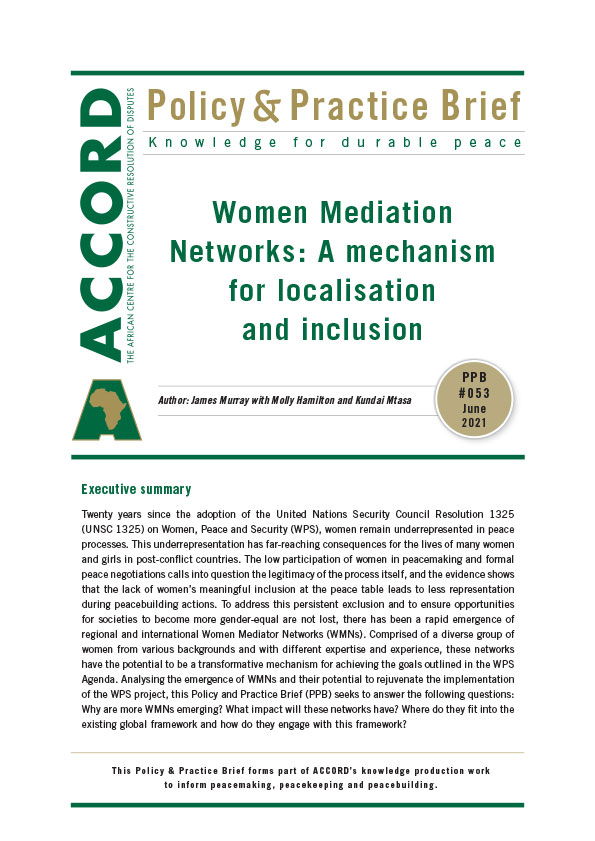
Twenty years since the adoption of the United Nations Security Council Resolution 1325 (UNSC 1325) on Women, Peace and Security (WPS), women remain underrepresented in peace processes. This underrepresentation has far-reaching consequences for the lives of many women and girls in post-conflict countries.
Reflections on Success
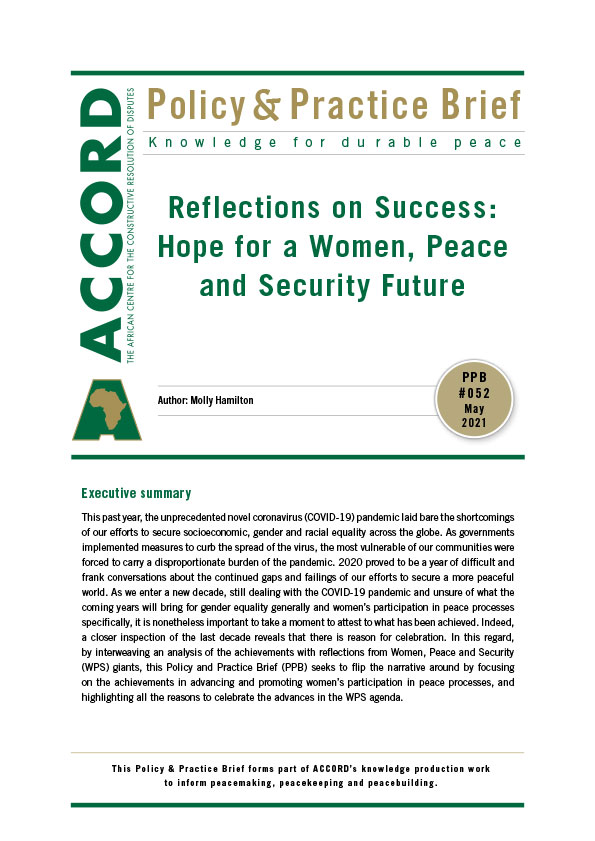
By interweaving an analysis of the achievements with reflections from Women, Peace and Security (WPS) giants, this Policy and Practice Brief (PPB) seeks to flip the narrative around by focusing on the achievements in advancing and promoting women’s participation in peace processes, and highlighting all the reasons to celebrate the advances in the WPS agenda.
The Impact of the Covid-19 Pandemic on Border Communities
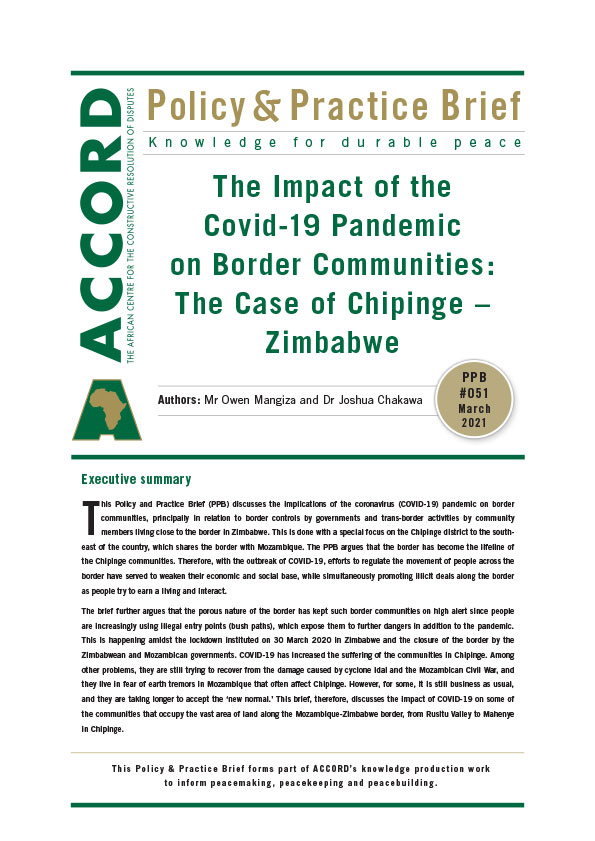
This Policy and Practice Brief (PPB) discusses the implications of the coronavirus (COVID-19) pandemic on border communities, principally in relation to border controls by governments and trans-border activities by community members living close to the border in Zimbabwe.
The Twentieth Anniversary of UNSCR 1325
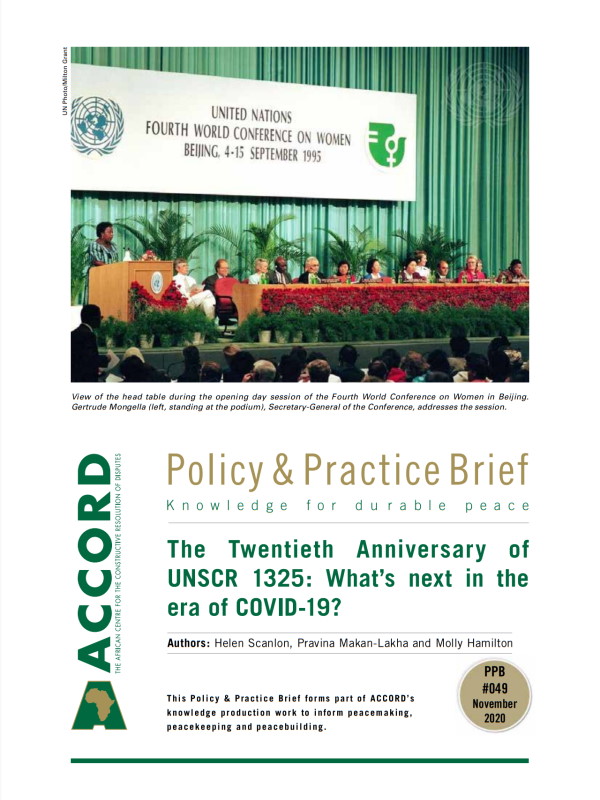
This Policy & Practice Brief forms part of ACCORD’s knowledge production work to inform peacemaking, peacekeeping and peacebuilding
Strengthening local and national infrastructures for peace in Burundi, the Democratic Republic of the Congo, Lesotho and South Sudan
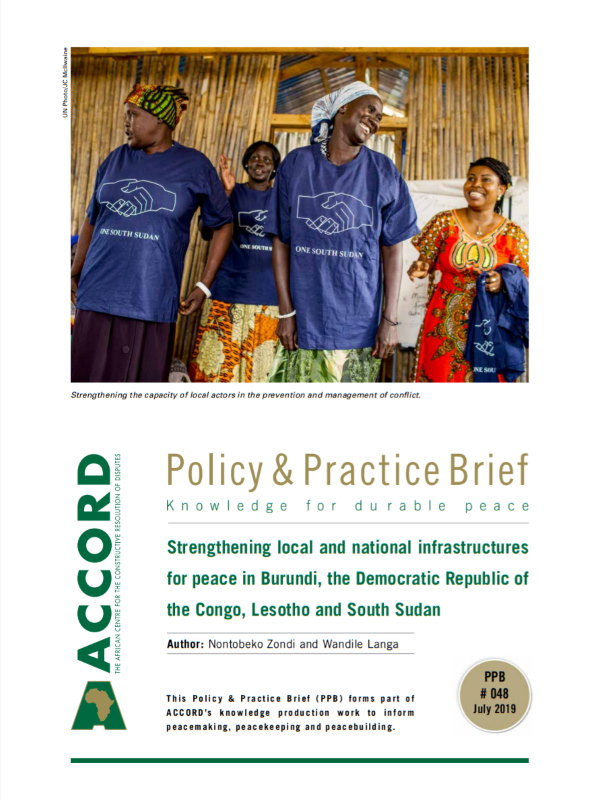
Executive summary In 2016, ACCORD outlined its 2017-2021 Six-Pillar Strategy, which seeks to contribute to sustainable peace, security and development in Africa by mitigating conflict. One of the critical pillars of the Strategy is Pillar 2, which focuses on strengthening local and national infrastructures for peace. This Policy and Practice Brief aims to reflect on […]
Opportunities and Challenges of Ensuring Stability in Kenya’s 2017 General Elections
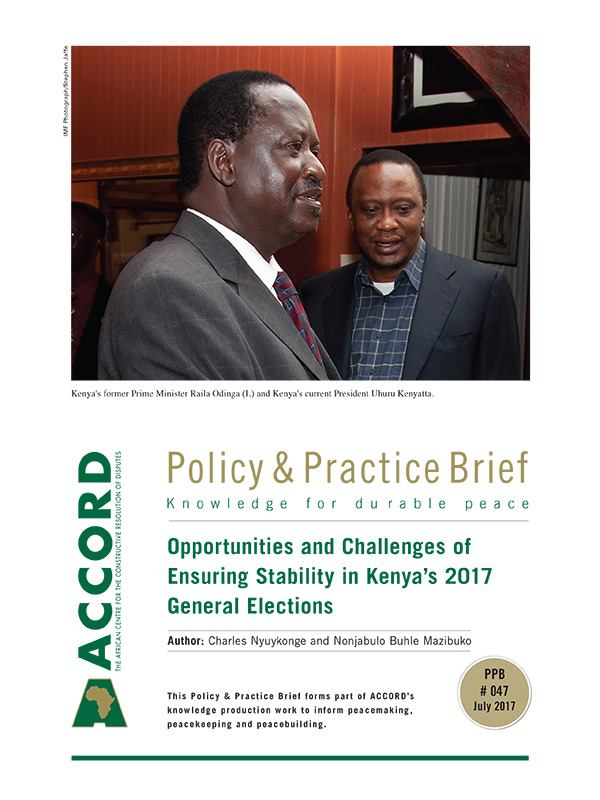
Executive summary With Africa having steadily begun the litany of elections billed for 2017, the orderly manner in which Somalia’s elections took place restored a glimmer of hope in those who think only the worst for Africa’s democratic and electoral maturity. With over 20 elections scheduled to take place before December 2017, the African Union […]
In Defense of Democracy
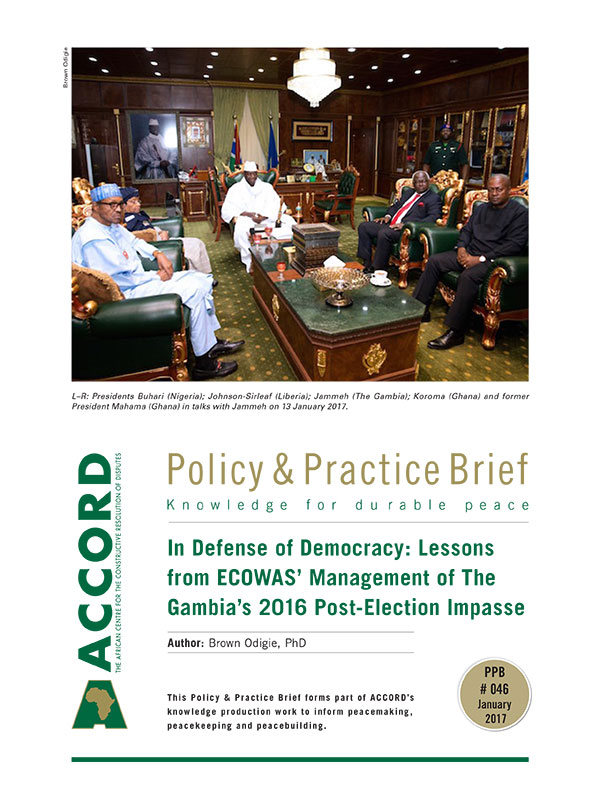
Executive Summary The years 2015 and 2016 were crucial for the Economic Community of West African States (ECOWAS) from the perspective of its efforts to ensure sustainable peace and stability in the region, through supporting the conduct of peaceful elections and the orderly transfer of power.1 A total of 10 of its 15 member states […]
Preliminary reflections on the 2016 Liberian National Conflict-Mapping Exercise
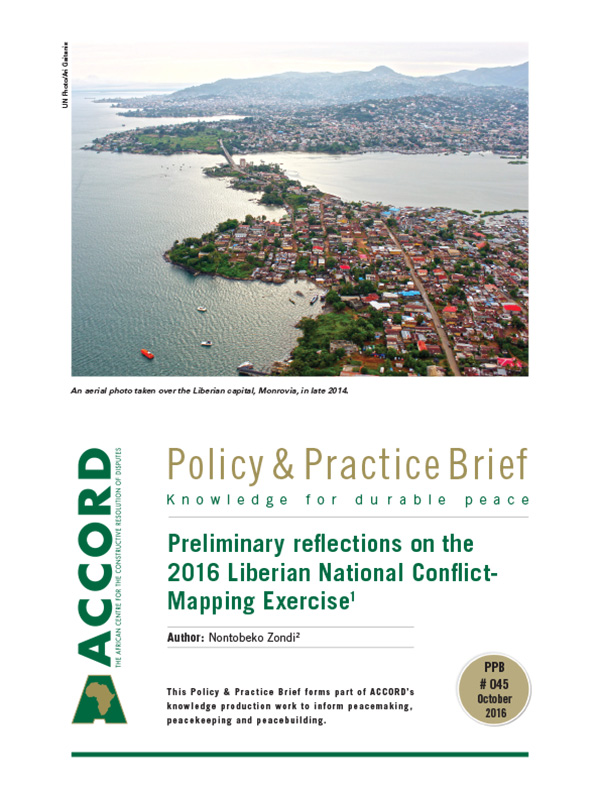
This Policy and Practice Brief (PPB) is the first of a two-part series of papers focusing on the Liberian Government’s 2016 National Conflict-Mapping Exercise (NCME). With respect to the scale, scope and underlying innovation – in terms of process and methodology – of the exercise, this series of papers aims to explore, document and critically […]
